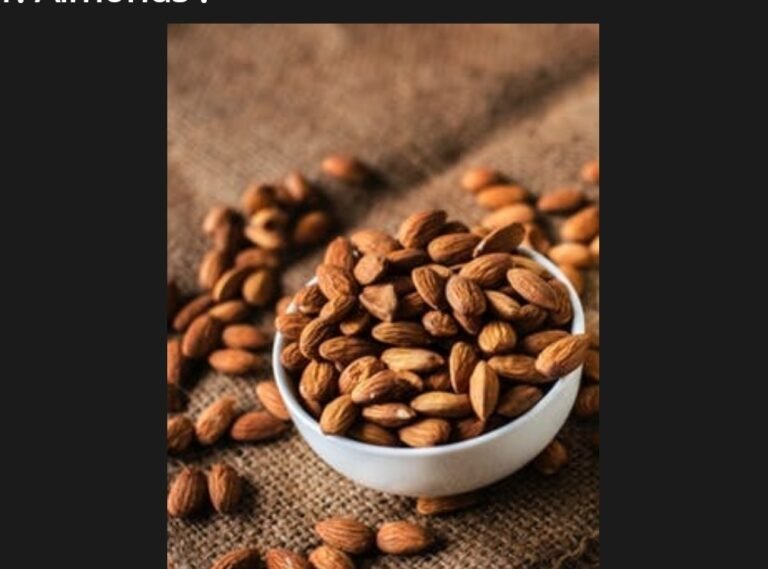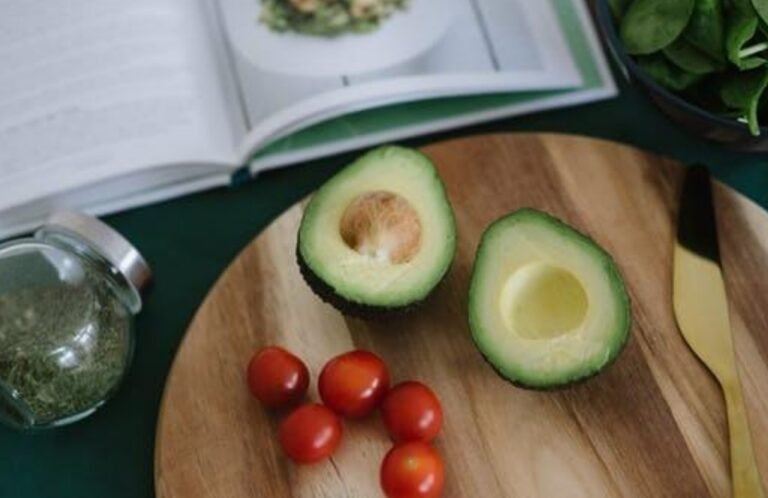High fiber foods for weight loss.
The prevalence of obesity has increased in recent years due to a combination of unhealthy eating habits, stress, and poor lifestyle choices. To relieve the burden of excess weight, it is recommended to implement a combination of a healthy diet and exercise routine. Increasing fiber intake in meals is crucial for effective weight loss. Fiber, a type of carbohydrate that is not easily digested by the body, enhances digestion and absorption of nutrients and promotes a feeling of fullness, leading to the loss of extra pounds. It also has many health benefits, such as reducing cholesterol, blood pressure, blood sugar, and the risk of cancer and cardiovascular diseases. The sources of fiber listed below are excellent options.
1. Almonds :

Almonds are an excellent source of nutrition, providing 14.3 grams of insoluble fiber and 1.6 grams of soluble fiber per cup, alongside important nutrients such as fatty acids, folate, vitamin A, vitamin E, iron, and dietary fiber. Incorporating almonds into your diet is a simple and delicious way to boost your nutrition intake. Consider adding soaked almonds to your breakfasts, oatmeal, shakes, smoothies, and salads to enjoy their numerous health benefits. We encourage you to explore various ways to include almonds in your meals to create a balanced and wholesome diet.
2. Raspberries and Blackberries :

Raspberries and blackberries are an excellent source of fiber, providing 8 grams of fiber per cup. It’s noteworthy that raspberries contain the highest amount of fiber in each seed. Adding these berries to your meals can help meet your daily fiber requirement. You can include them plain or use them as toppings in salads, oatmeal, smoothies, yogurt or on desserts, maximizing their nutritional benefits.
3. Oatmeal :

Starting your day with a nutrient-dense breakfast can provide you with the energy and fullness you need to tackle your busy schedule. Consider incorporating fiber-rich options, such as oatmeal, into your morning routine. Not only does a single cup of oatmeal contain four grams of dietary fiber, this whole grain also boasts a range of additional benefits, including essential minerals, proteins, and vitamins. Moreover, with its ability to bind with fats in the intestine and effectively remove them from the body, oatmeal is a smart choice for those looking to maintain a healthy weight. To maximize your fiber intake, try topping your oatmeal with a variety of fresh fruits and enjoy a delicious, nutritious start to your day.
4. Beans :

One approach to prepare beans is soaking them overnight and boiling them the next day. Alternatively, you can create a mixed beans salad.
5. Seeds :

The following information highlights the dietary fiber content of seeds commonly consumed in our daily diet. Flax seeds, amaranth, barley, sorghum, and chia seeds contain 25 grams, 29 grams, 31 grams, 26 grams, and 60 grams of fiber per cup, respectively. These seeds are known for their rich nutrient profile and their ability to promote healthy digestion, increase feelings of fullness, and reduce cravings. By incorporating these high-fiber seeds into your diet, you can boost your overall health and wellness.
6. Avocado :

Avocado is a nutrient-packed fruit that contains between 10 and 17 grams of fiber per fruit, making it an excellent source of vitamins B6, D, A, E, iron, and monounsaturated fats. Regular consumption of avocado has been linked to the prevention of cardiovascular diseases, diabetes, cancer, hypertension, and osteoarthritis.
In fact, a single avocado contains roughly 50% of the recommended daily fiber intake. Another noteworthy benefit of avocados is their ability to facilitate digestion and the absorption of vital nutrients. As such, including avocados in your diet can help to improve your overall health and well-being.